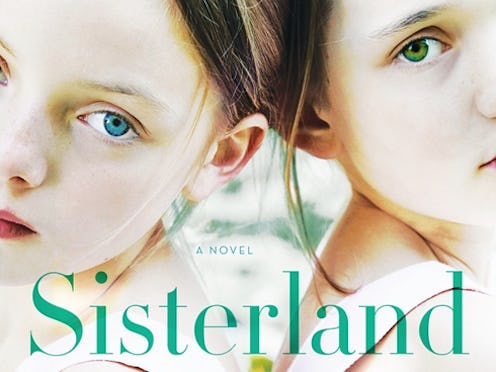Books
Curtis Sittenfeld is Back With 'Sisterland'

When you pick up a book, you have presuppositions: You are influenced by the cover art, you remember your favorite English professor raving about it, you recall seeing it on bestselling lists, or perhaps it is written by an author you adore.
Sisterland by Curtis Sittenfeld was no exception. The few reviews of Sisterland at which I glanced before reading the novel all indicated that it would be as fantastic as her past bestselling novels, Prep and The American Wife. I assumed I would love this book—I even planned on it. And so, because of all my presuppositions, it took me until the end of the novel to realize, OK, I like this, but I'm not quite in love.
The novel follows Kate Tucker, both through present time and flashbacks. Kate has spent the majority of her life attempting to repress her psychic abilities, while her twin sister Vi has learned to enhance, flaunt, and monetize them. When Vi predicts that a huge earthquake will rock their hometown of St. Louis, Kate is forced to reconcile with her sister and face truths about her past.
The reason I'm incapable of saying the L-word to Sisterland is that throughout the novel I was left feeling overwhelmed. Handling the psychic thing (more on that later) was no problem, but adding in twins, a troubled childhood, an earthquake prediction, interracial marriage and racial discrimination, marital tensions, death, motherhood, moving and starting over in a new town, emerging adulthood, finding your way in the world, aging parents… I wasn't sure were to land. Before I could seriously think about the implications of one theme, like what narratives about our pasts and families we are trying to convince the world to believe, Sisterland had rushed along to a new, dramatic topic.
At one point Kate ruminates: "Making the cranberry relish, I vacillated between considering the logistics of our impending meal and wondering if I'd wrecked my life." Like Kate's thoughts, the actions and themes vacillate constantly throughout the novel. Without revealing anything important, this was particularly true in the final quarter of the novel when it felt like every page contained multiple, shifting elements. Finding my footing was a challenge.
One pleasant surprise from the novel, however, was the natural, thoughtful, and not-at-all gimmicky presentation of the psychic abilities of Kate and Vi. The twins describe their abilities as "senses", which is ostensibly how Sittenfeld presents them. There are no crystal balls, tea leaves, or puffs of colored smoke, simply a sense of an unknown truth or upcoming event. In one scene, Kate realizes the date of Vi's predicted earthquake: " I fell asleep after Owen's two A.M. nursing but awakened well before the next one. I thought it was almost morning, but when I pressed the little glow button on my watch, it wasn't yet four. I closed my eyes, and as soon as I did I opened them again. October 16, I thought. That would be the day of Vi's earthquake."
Ultimately, the psychic elements represented the secrets and quirks that every family hides, or tries to hide. As much as Kate tries to cling to normalcy, it simply isn't possible, and I am left with the sense (no pun intended) that if we were allowed into the heads of some of the characters with a supposedly more "typical" background we'd find that they have their fair share of secrets and oddities, as well. Additionally, in spite the whole psychic connection, Kate has managed to build herself a surprisingly normal and vanilla life: She is a stay-at-home mom with two sweet kids. She lives in the suburbs. She is married to a science professor. She likes ice cream. She struggles with insecurity. The senses are simply presented as another aspect of her character.
Although the quality of Sittenfeld’s writing stayed high, her characters proved dynamic, and I did enjoy reading the novel, I wish Sittenfeld had tried to tackle less topics and left more room for reflection.
This does not mean I am no longer a fan of Sittenfeld or that I plan on forgetting her anytime soon. In fact, I am already looking forward to her next projects, a modern-day Pride and Prejudice and sequel to Prep. However, it did prove a good reminder to not let presuppositions get in the way of an authentic interaction with a novel. We are not required to love any book, even if it is a classic or written by one of our favorite authors. Perhaps you will love this one. I, for one, just liked it.